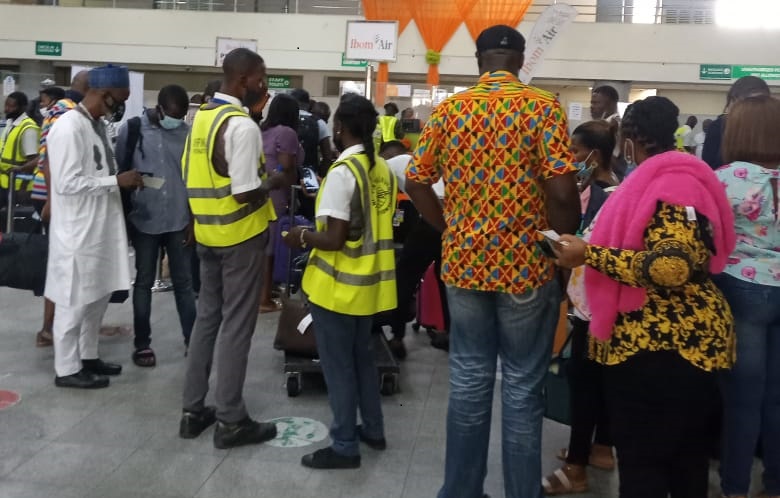Prices of air tickets have risen by over N20,000 in Nigeria as airlines begin to shut down operations.
Scarcity of flights are beginning to influence prices as an economy ticket has been reviewed upward by 36.36 per cent hours after airlines begin to shutdown from N55,000 to between N75,000 and N90,000.
Earlier in 2022, the price for an economy ticket was around N28,000 for a one way ticket.
Air peace economy (Flexi Domestic) ticket from Lagos to Abuja for Friday trip is selling for N82,000; while ticket for Saturday for the same airline is selling for N100,000.
THE WHISTLER findings reveal that most fights are fully booked at their current prices, while some airlines will not have flights to some destinations for over two months.
Business class is now selling for between N101,167 and N130,000 charged by airlines like Air Peace.
For Ibom Air, economy ticket price begins from N75,000 for most one way trip. The airline has no direct flight from Abuja to Bayelsa State until August 1 as well as some other destinations.
The review is coming on the backdrop of the headwinds faced by airlines forcing them to either shutdown operations or their licenses withdrawn by the Nigerian government.
Aero Contractors on Monday July 18, 2022 shutdown flights operations indefinitely on the account of the high prices of Jet A1 fuel, foreign exchange scarcity and its inability to maintain its aircrafts.
Dana Air on Wednesday July 20th, 2022 lost its Air Transport License (ATL) and Air Operator Certificate (AOC) over its inability to meet up with financial obligations.
The Airline Operators of Nigeria (AON) in a letter dated July 18, had urged the Nigerian Civil Aviation Authority to remove the 25 per cent fuel surcharge so as to reduce the impact of the price increase of Jet A1 on airlines.
AON had said, ““In order to forestall a backlash and total shutdown of the system, airlines are hoping to resort to an introduction of a fuel surcharge of between 25 percent – 40 percent of NUC as a way of offsetting the additional burden brought about by increased fuel cost, bearing in mind that jet fuel accounts for about 40 percent of total operational expenses.”
They had also demanded for a waiver on the additional five percent on the fuel surcharge which is entirely separate from the five percent ticket sales charge (TSC).
 DailyrecordNg …Nigeria's hottest news blog
DailyrecordNg …Nigeria's hottest news blog









